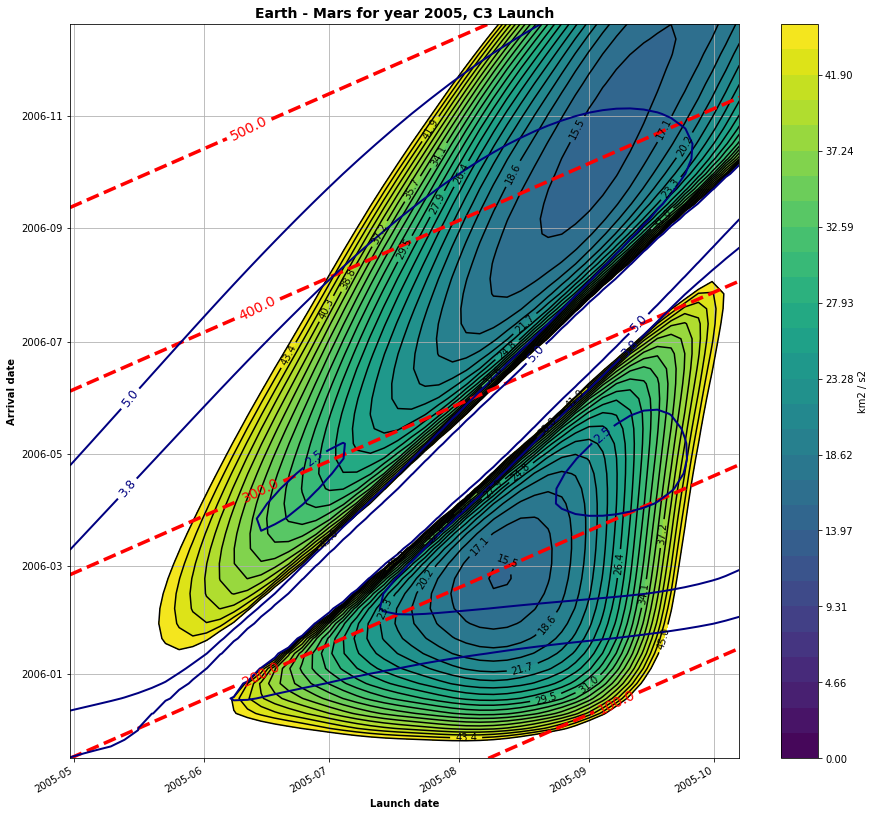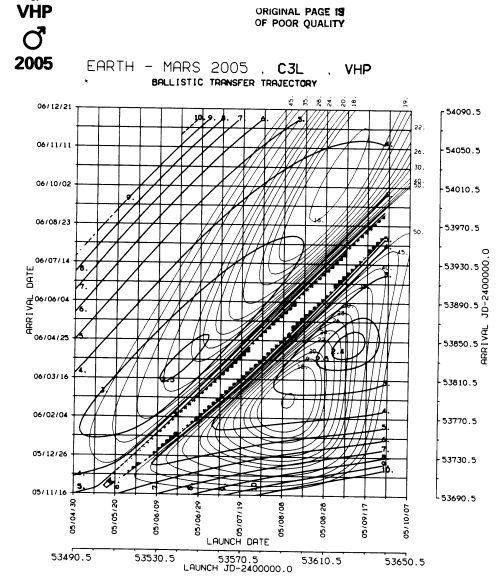Porkchops with poliastro¶
Porkchops are also known as mission design curves since they show different parameters used to design the ballistic trajectories for the targetting problem such as:
Time of flight (TFL)
Launch energy (C3L)
Arrival velocity (VHP)
For the moment, poliastro is only capable of creating these mission plots between poliastro.bodies objects. However, it is intended for future versions to make it able for plotting porkchops between NEOs also.
Basic modules¶
For creating a porkchop plot with poliastro, we need to import the porkchop function from the poliastro.plotting.porkchop module. Also, two poliastro.bodies are necessary for computing the targetting problem associated. Finally by making use of time_range, a very useful function available at poliastro.utils it is possible to define a span of launching and arrival dates for the problem:
[1]:
from astropy import units as u
from poliastro.bodies import Earth, Mars
from poliastro.plotting.porkchop import PorkchopPlotter
from poliastro.util import time_range
launch_span = time_range("2005-04-30", end="2005-10-07")
arrival_span = time_range("2005-11-16", end="2006-12-21")
Plot that porkchop!¶
All that we must do is pass the two bodies, the two time spans and some extra plotting parameters realted to different information along the figure such us:
If we want poliastro to plot time of flight lines:
tfl=True/FalseIf we want poliastro to plot arrival velocity:
vhp=True/FalseThe maximum value for C3 to be ploted:
max_c3=45 * u.km**2 / u.s**2(by default)
[2]:
porkchop_plot = PorkchopPlotter(Earth, Mars, launch_span, arrival_span)
dv_dpt, dv_arr, c3dpt, c3arr, tof = porkchop_plot.porkchop()

NASA’s same porkchop¶
We can compare previous porkchop with the ones made by NASA for those years.
